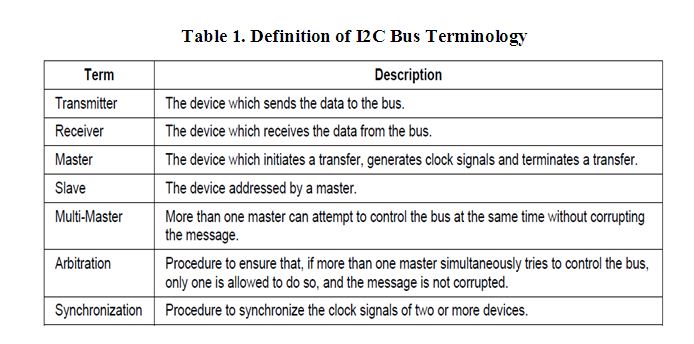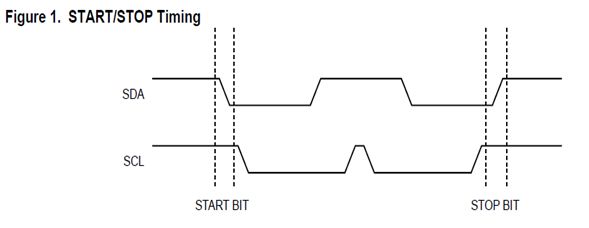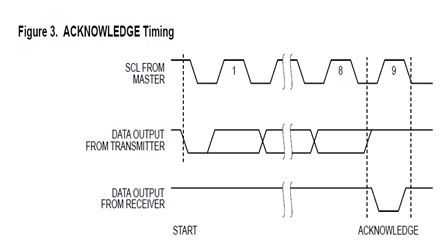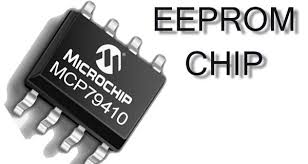



CAT24CXX Interface to 8051 Microcontroller:
The main features of the 24XXX serial EEPROMs are:
/* Name : main.c
* Purpose : Source code for Serial EEPROM AT24C02 with AT89C52.
* Author : Gemicates
* Date : 2014-02-29
* Website : www.gemicates.org
* Revision : None
*/
//Program to interface Serial EEPROM AT24C02 with 8051 microcontroller
#include <REGX52.H>
#include<intrins.h> // For using [_nop_()]
sbit sda=P1^0;
sbit scl=P1^1;
sbit SW2=P1^2;
sbit SW3=P1^3;
sbit SW4=P1^4;
bit ack;
//sfr output=0x80; // p0 port
sfr output=0x90; // p1 port
sfr lcd_data_pin=0xA0; // p2 port
//sfr output=0xB0; // p3 port
sbit rs=P3^2;
sbit rw=P3^3;
sbit en=P3^4;
sbit led=P3^5;
sbit led1=P3^6;
sbit SW1=P3^7;
unsigned char reead,write,write2,i,j,k,l;
unsigned int temp;
void delay(unsigned int count)
{
int i,j;
for(i=0;i<count;i++)
for(j=0;j<1275;j++);
}
void lcd_command(unsigned char comm)
{
lcd_data_pin=comm;
en=1;
rs=0;
rw=0;
delay(1);
en=0;
}
void lcd_data(unsigned char disp)
{
lcd_data_pin=disp;
en=1;
rs=1;
rw=0;
delay(1);
en=0;
}
void lcd_dataa(unsigned char *disp)
{
int x;
for(x=0;disp[x]!=0;x++)
{
lcd_data(disp[x]);
}
}
void lcd_ini()
{
lcd_command(0x38); // for using 8-bit 2 row LCD
delay(5);
lcd_command(0x0F); // for display on, cursor blinking
delay(5);
lcd_command(0x80);
delay(5);
}
void aknowledge() // acknowledge condition
{
scl=1;
_nop_();
_nop_();
scl=0;
}
void start() // start condition
{
sda=1;
scl=1;
_nop_(); // No operation
_nop_();
sda=0;
scl=0;
}
void stop() // stop condition
{
sda=0;
scl=1;
_nop_();
_nop_();
sda=1;
scl=0;
}
void send_byte(unsigned char value) // send byte serially
{
unsigned int i;
unsigned char send;
send=value;
for(i=0;i<8;i++)
{
sda=send/128; // extracting MSB
send=send<<1; // shiftng left
scl=1;
_nop_();
_nop_();
scl=0;
}
ack=sda; // reading acknowledge
sda=0;
}
unsigned char read_byte() // reading from EEPROM serially
{
unsigned int i;
sda=1;
reead=0;
for(i=0;i<8;i++)
{
reead=reead<<1;
scl=1;
_nop_();
_nop_();
if(sda==1)
reead++;
scl=0;
}
sda=0;
return reead; // Returns 8 bit data here
}
void save() // save in EEPROM
{
start();
send_byte(0xA0); // device address
aknowledge();
send_byte(0x0000); // word address
aknowledge();
send_byte('G'); // send data
aknowledge();
send_byte('E');
aknowledge();
send_byte('M');
aknowledge();
send_byte('I'); // send data
aknowledge();
send_byte('C');
aknowledge();
send_byte('A');
aknowledge();
send_byte('T'); // send data
aknowledge();
send_byte('E');
aknowledge();
send_byte('S');
aknowledge();
stop();
if(ack==0)
{
led=0;
delay(100);
lcd_command(0x86);
lcd_data('G');
lcd_command(0x87);
lcd_data('E');
lcd_command(0x88);
lcd_data('M');
lcd_command(0x89);
lcd_data('I');
lcd_command(0x8A);
lcd_data('C');
lcd_command(0x8B);
lcd_data('A');
lcd_command(0x8C);
lcd_data('T');
lcd_command(0x8D);
lcd_data('E');
lcd_command(0x8E);
lcd_data('S');
led=1;
delay(100);
}
else
led1=0;
aknowledge();
}
void Read()
{
start();
send_byte(0xA0);
aknowledge();
send_byte(0x0000);
aknowledge();
start();
send_byte(0xA1); // device address
aknowledge();
i=read_byte();
aknowledge();
j=read_byte();
aknowledge();
k=read_byte();
aknowledge();
l=read_byte();
aknowledge();
stop();
if(i!=0xff)
{
led1=0;
delay(100);
write=i;
lcd_command(0xC6);
lcd_data(write);
write=j;
lcd_command(0xC7);
lcd_data(write);
write=k;
lcd_command(0xC8);
lcd_data(write);
write=l;
lcd_command(0xC9);
lcd_data(write);
led1=1;
delay(100);
}
}
void Read_dep()
{
start();
send_byte(0xA0);
aknowledge();
send_byte(0x0004);
aknowledge();
start();
send_byte(0xA1); // device address
aknowledge();
i=read_byte();
aknowledge();
j=read_byte();
aknowledge();
k=read_byte();
aknowledge();
l=read_byte();
aknowledge();
stop();
if(i!=0xff)
{
led1=0;
delay(100);
write=i;
lcd_command(0xC6);
lcd_data(write);
write=j;
lcd_command(0xC7);
lcd_data(write);
write=k;
lcd_command(0xC8);
lcd_data(write);
write=l;
lcd_command(0xC9);
lcd_data(write);
led1=1;
delay(100);
}
}
void Read_session()
{
start();
send_byte(0xA0);
aknowledge();
send_byte(0x0002);
aknowledge();
start();
send_byte(0xA1); // device address
aknowledge();
i=read_byte();
aknowledge();
j=read_byte();
aknowledge();
k=read_byte();
aknowledge();
l=read_byte();
aknowledge();
stop();
if(i!=0xff)
{
led1=0;
delay(100);
write=i;
lcd_command(0xC6);
lcd_data(write);
write=j;
lcd_command(0xC7);
lcd_data(write);
write=k;
lcd_command(0xC8);
lcd_data(write);
write=l;
lcd_command(0xC9);
lcd_data(write);
led1=1;
delay(100);
}
}
int main()
{
lcd_ini();
lcd_dataa("Sent :");
lcd_command(0xC0);
lcd_dataa("Read :");
temp=0;
while(1)
{
if(SW1==0)
{
save();
}
if(SW2==0)
{
led1=0;
Read();
led1=1;
}
if(SW3==0)
{
led1=0;
Read_dep();
led1=1;
}
if(SW4==0)
{
led1=0;
Read_session();
led1=1;
}
}
// return 0;
}
